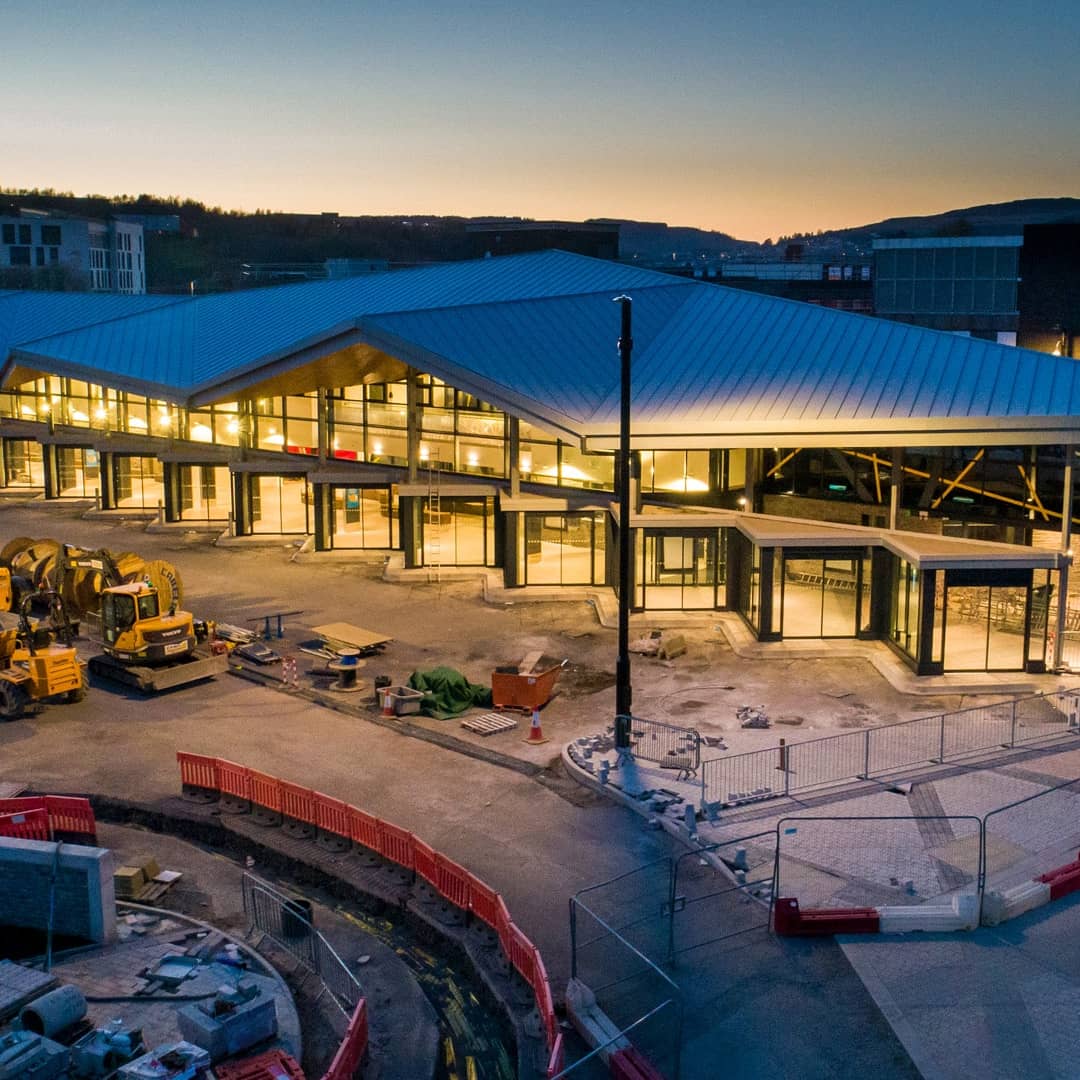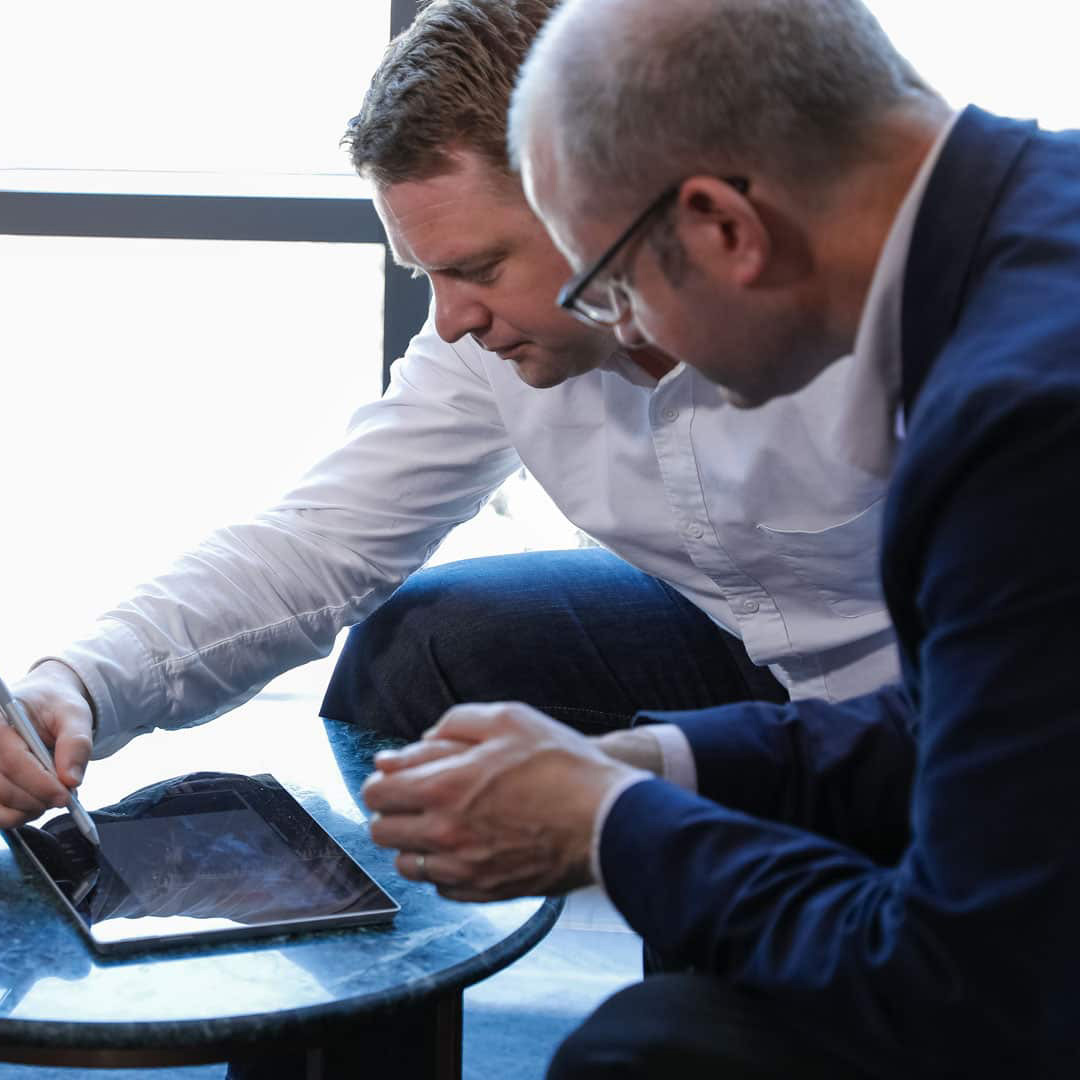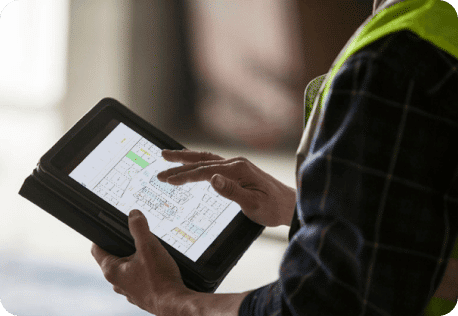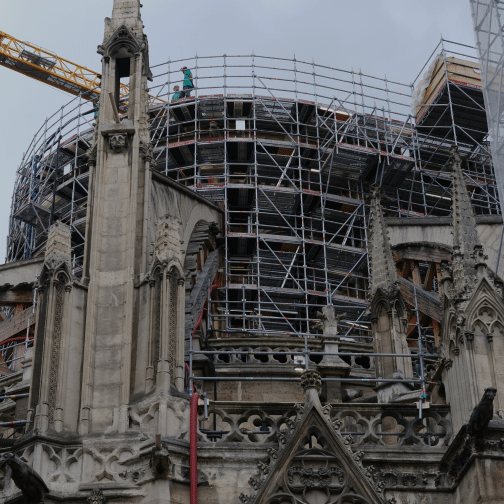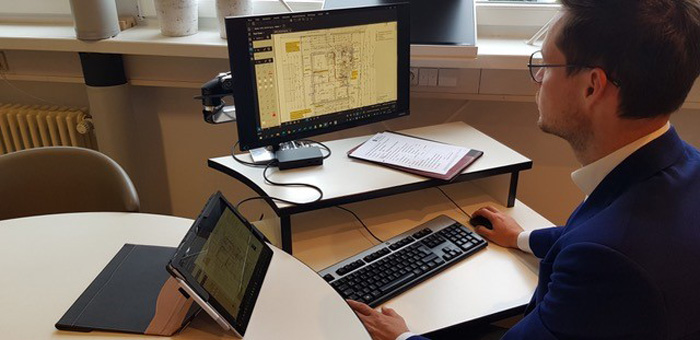
SchwörerHaus relies on Bluebeam Revu for producing and reviewing plans, quantity estimation and material procurement
The dream of building your own home remains a lifelong dream for many. And those who can fulfil it usually only do so once in their lives. This makes it all the more important to work closely with the architectural firm and construction company to make sure that the design, quality of implementation and ultimately the costs are just right. And with rising raw material and product prices, as well as increasingly scarce construction and finishing materials, you need to build as efficiently as possible when it comes to using resources. A family business founded in 1950 in Sigmaringen as a building materials retailer, SchwörerHaus KG is the largest part of the Schwörer Group based in Hohenstein-Oberstetten. The prefabricated home company is a trusted partner when it comes to tackling the venture of building a home and continues to rely on Bluebeam Revu for a large number of projects, both today and in the future. And for good reason.
SchwörerHaus has grown steadily in recent years. This is demonstrated by its collection of patents and awards in the field of technology and architecture. And its portfolio no longer features just single-family homes or apartment buildings. The company has had great success with its prefabricated residential modules, which create valuable living space under the name ‘FlyingSpace’. The Schwörer Group as a group of companies also builds multi-storey residential buildings and hotels in hybrid construction from prefabricated products such as prestressed concrete ceilings, prefabricated bathrooms or wooden panel walls.
Individual support with efficient processes
However, this wide range of construction projects also means that the processes need to be as efficient and well structured as possible, from the very first enquiry received by families looking to build, all the way through to commissioning. With a total of 44,000 houses sold, individual processing and support form the basis of every project. However, quality, cost certainty and resource-saving construction need to be ensured during production. SchwörerHaus also offers extensive services such as a fixed price guarantee, payment of 90 percent of the house price only after the house has been handed over, and free customer service in accordance with the German Civil Code.
Costs are still easy to control, especially in the early design phases. However, once detailed design has been completed and construction services have been awarded, countermeasures can only be taken at great expense. This makes it all the more important to utilise digital tools wherever they have a meaningful and optimising effect in the design and subsequent construction process. SchwörerHaus started the process of digitalising its design and production chain years ago. A great deal is now developed, prefabricated and driven forward with innovations at various company locations.
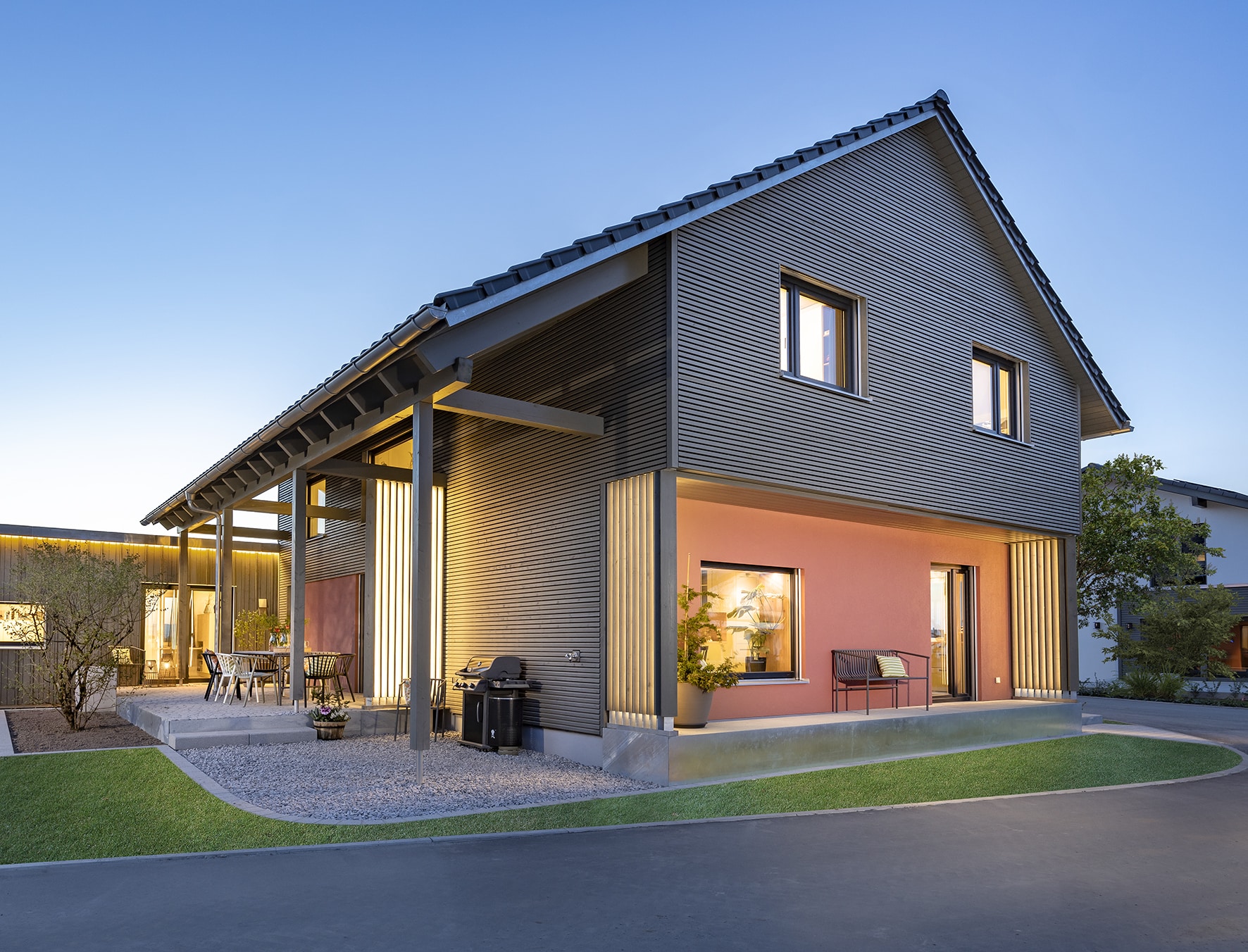
Consistent, digitally controlled processes
The major challenge that companies like SchwörerHaus have to face is a digital way of working from project start to finish, with as few errors as possible and consistent design based on the principle of a single source of truth. Translated into the prefabricated house company’s work processes, this means that – regardless of who’s working on project drawing files or documents – adjustments must be transparent and clearly readable at all times and processing statuses or drawing corrections can be assigned to each employee. Bluebeam Revu has been making a decisive contribution to this since 2019: the software is used in a variety of ways at SchwörerHaus to support and drive forward the digital process chain across teams and project phases.
Facilitating design review. Improving transparency
Every construction project requires comprehensive documentation. All relevant adjustments need to be made in a legally secure manner and retained for up to 10 years in case of any claims. Prior to using Bluebeam Revu, this required archiving – or manually scanning – loads of folders full of documents and paper drawings. This involved immense additional expenditure in terms of both time and storage. Manual in-house inspections and approvals from external design offices, builders and authorities also needed to be dealt with.
However, this practice, which is still used today in many projects in Germany and beyond, was neither contemporary nor forward-looking for SchwörerHaus, as Robin Schneider, Business Informatics Specialist, makes clear: "The design review process and collaborating with external architecture and design offices was incredibly paper-intensive and wasted resources. Multiple copies of complete drawing sets were the standard. This also involved constantly sending folders full of paper documents and printed drawing sets to the offices." The internal design review was no less dependent on paper. The computer scientist continues: "After all the approvals by external parties, those thick folders also needed to pass through our office. Various departments then attached their review notes to the printed drawings or used them for their measurement and quantity calculations, ensuring that certain services had been performed."
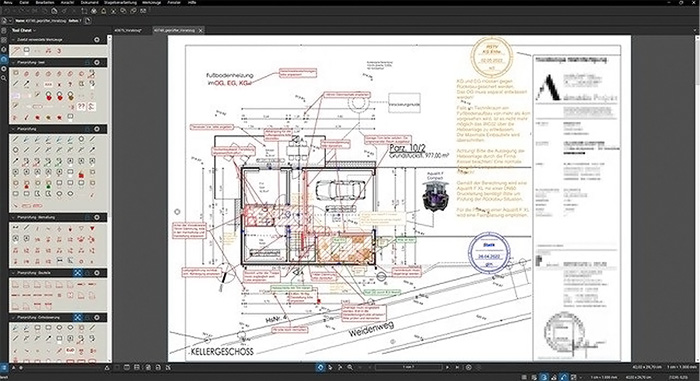
Reducing error rates. Increasing overall quality
The error rate involved in the paper-based design and construction process is enormously high: crucial design documents or even manually created error logs during the construction phase can be lost on their way from one person to another; manual corrections might not be correctly transferred; or comments may be misinterpreted. Another aspect that drove the use of Bluebeam was the immense amount of paper saved by going digital. Robin Schneider comments: "As a sustainable company committed to climate protection, SchwörerHaus relies on resource-saving construction. Sustainability also involves using paper only when necessary, both during design and implementation. We’ve been able to significantly reduce our paper consumption thanks to Bluebeam Revu."
Single Source of Truth: security for every project
"As a sustainable company committed to climate protection, SchwörerHaus relies on resource-saving construction. Sustainability also involves using paper only when necessary, both during design and implementation. We’ve been able to significantly reduce our paper consumption thanks to Bluebeam Revu."
Robin Schneider
Business Informatics Specialist
SchwörerHaus KG
A key part of SchwörerHaus’s design services is sampling and individually furnishing residential construction projects together with the building owners. Vital questions are all clarified in the adjoining showroom in the factory, such as the number and location of sockets, luminaires and the position of the ceiling outlets, the direction of the windows and doors or the heating system. Product sampling is based on hand samples and catalogues, but the subsequent electrical planning is done completely digitally, directly on MS Surface devices. The design files are available in PDF format and can be edited in Bluebeam Revu. These must be binding and understood by everyone as a single source of truth. Because any changes and adjustments made later are only noted on this one design file. Errors caused by having different file statuses and versions, or processing that still needs to be carried out within the company or by external design offices, can therefore be completely prevented.
However, Bluebeam Revu is by no means limited to design review and digital design documentation. The software is also used for work preparation and material ordering. For example, the measurement tool in Revu can be used to quickly and accurately calculate areas and quantities, such as for tile floors. The same applies to the rapid measurement of freeforms, which could previously only be determined in a cumbersome and inaccurate way using the Pythagorean theorem. With just a few clicks, it’s now possible to work out the exact size.
One solution for construction design, construction and resource conservation
SchwörerHaus decided to utilise Bluebeam Revu construction software, which specialises in PDF file formats and 2D, because a) the program was quick to learn; b) the work process could be digitalised immediately and comprehensively in-house with little effort; and c) it optimised the range of features for construction design. Above all, it made the review processes for design documents comprehensible, transparent and reliable. Another major benefit of the program is the central storage of tool sets, which every editor can use to ensure they always have access to the current file version. This is done using different permissions for file sharing so that only one or two project owners from a department have change rights to the toolbars. Plus, Bluebeam Revu has comprehensive and precise measurement features, as well as a clear user interface that can be optimally designed to meet the needs of the prefabricated house manufacturer.
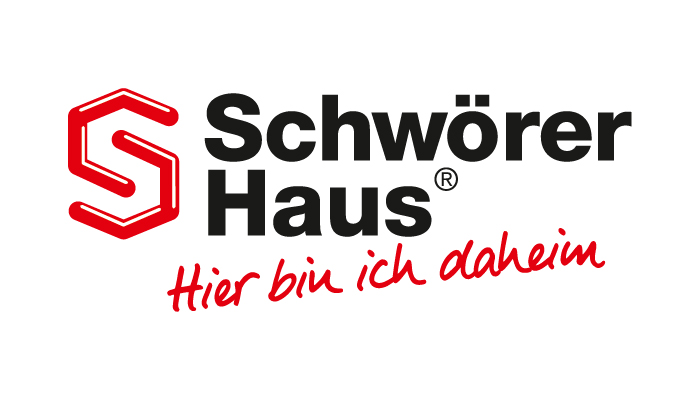
Conclusion: Consistent digitalisation for maximum project transparency with minimum potential for errors
All in all, using Bluebeam Revu has quickly paid off for SchwörerHaus. This is because losses from manual processes have now been eliminated in many areas. Among other things, this minimises the company’s paper consumption, saving valuable natural resources and a lot of time. In addition, all design changes become much more transparent and comprehensible; the frequency of errors noticeably decreases.
For future-oriented and sustainable company SchwörerHaus, the consistent digitalisation of the entire design and project process is an important basis for its own market success. Digitally optimised internal and external processes benefit the company’s own employees as well as external parties involved in the design and specialist tradespeople.
